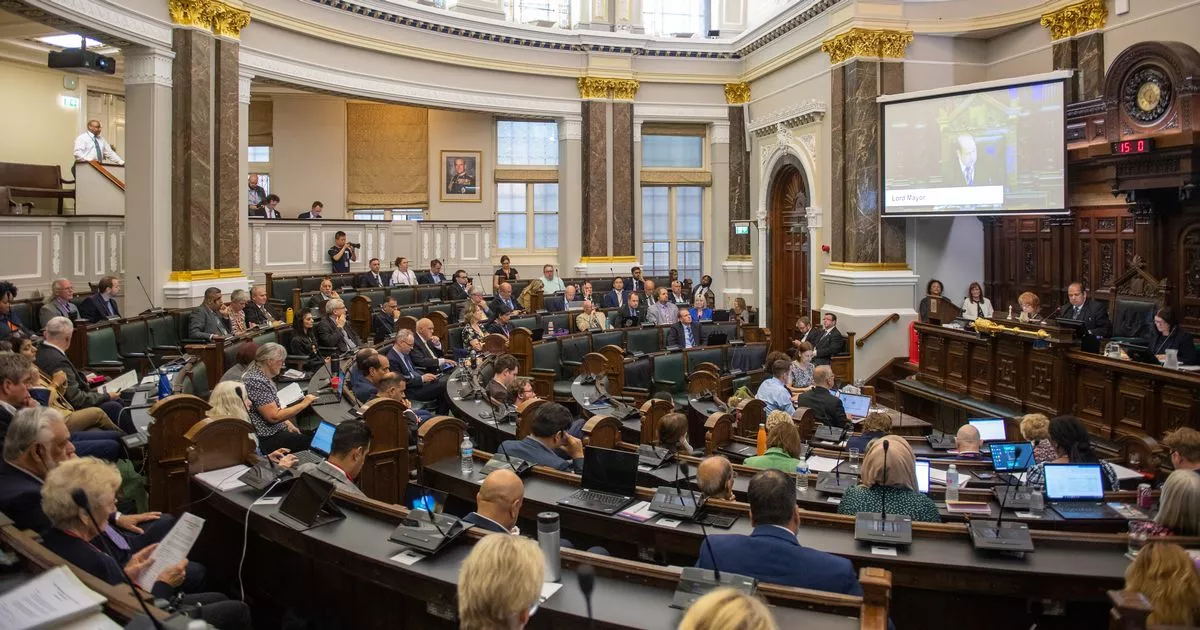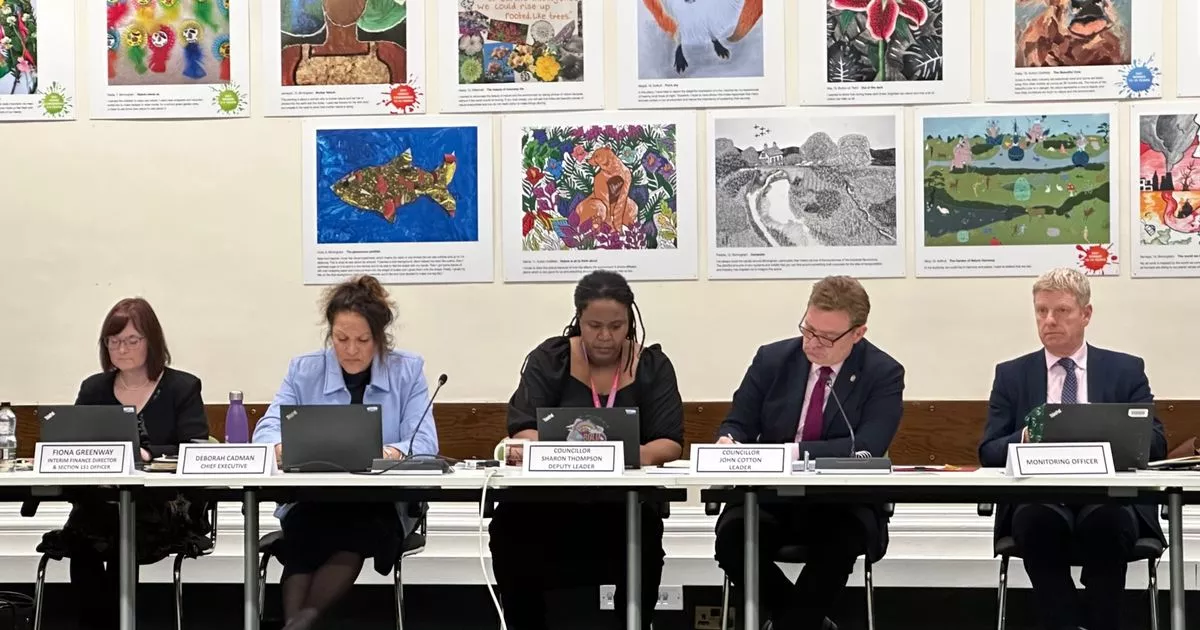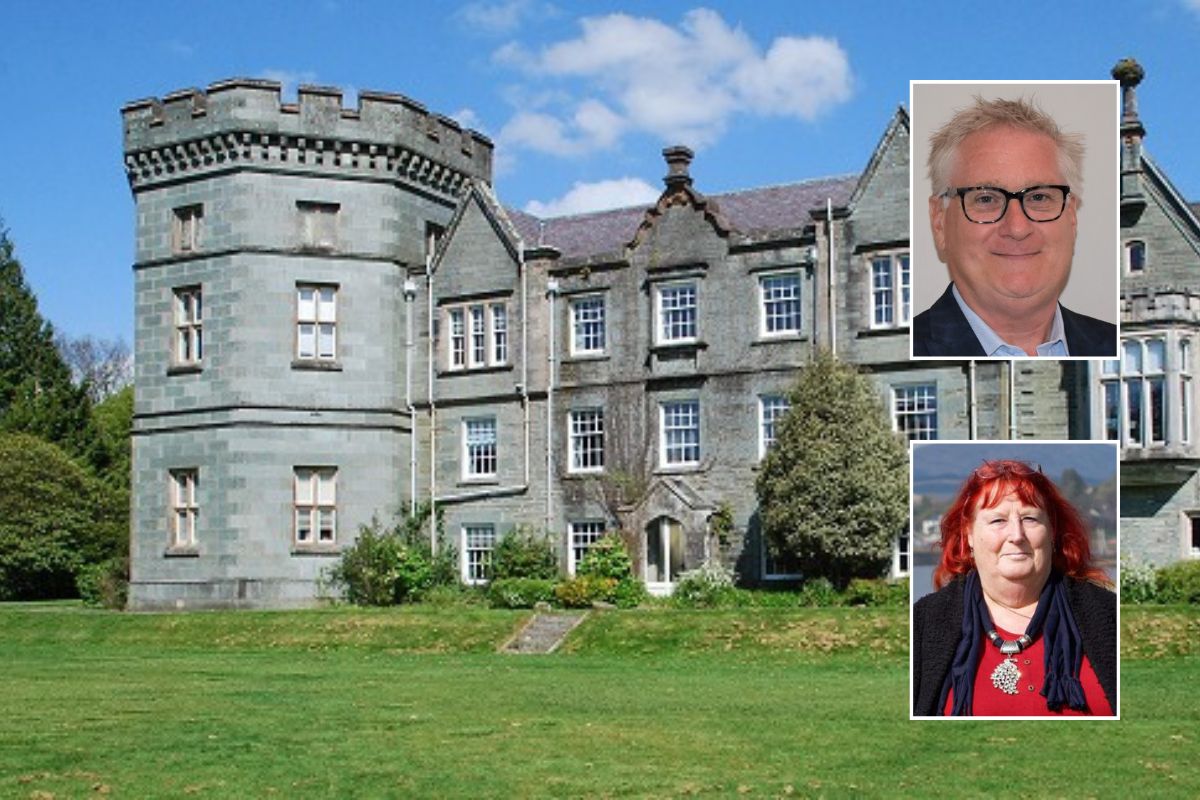On a fateful day in Argyll and Bute Council, a political drama showcased the delicate balance of power and the unexpected twists that can shape the course of governance.
What began as a contentious debate over council tax escalated into a high-stakes showdown, finally decided not by rhetoric or strategy but by the simple draw of cards.
This momentous event was triggered by a clash of ideologies and interests within the council. Fifteen councilors, united under the banner of the Strategic Opposition Partnership and comprising members from the SNP, Labour, and independent factions, convened a special meeting.

Bute Council Members (Credits: Birmingham Live)
Their primary grievance stemmed from the council’s contentious decision in February to approve a whopping 10% increase in council tax, which sparked outrage and dissent among various political groups.
The stage was set for a showdown as the councilors gathered for the extraordinary full council meeting on Thursday, April 4. The atmosphere crackled with tension as the votes for the Provost and leader positions ended in a rare and dramatic deadlock, with an equal split of 18-18 votes.
According to the established rules for such a scenario in political appointments, a cut of the cards would determine the outcome, injecting an element of chance into the proceedings.
The moment’s intensity was palpable as each card drawn carried the weight of potential victory or defeat. Maurice Corry, representing the Conservative party from Lomond North and initially holding the position of Provost, pulled the two diamonds.
Councillor Douglas Philand, an Independent from Mid Argyll, revealed the eight spades on the opposing side. The fate of leadership in the council’s hands now rested on the luck of the draw.
In a parallel spectacle, the race for the council’s leadership witnessed a similar twist of fate. The candidates, Councillor Robin Currie of the Liberal Democrats from Kintyre and the Islands and Councillor Jim Lynch from the SNP representing Oban South and the Isles, awaited their destiny as the cards were shuffled.
Councillor Currie launched the six of spades, while Councillor Lynch’s draw revealed the formidable 10 of spades. With the highest cards determining the victors in both crucial votes, the SNP-led opposition partnership emerged triumphant, securing control of the council’s reins.
The previous administration, known as TALIG (The Argyll, Lomond, and Islands Group), comprising Conservatives, Liberal Democrats, and certain independents, relinquished power as the new leadership took charge.
The immediate result of this political coup foreshadowed valid policy shifts. A reversal of the controversial council tax increase, a key point of contention that fueled the opposition’s campaign, was anticipated.
Plans were swiftly put in motion for a subsequent special meeting of the full council, scheduled for Monday, April 15, where the newly empowered leadership aimed to implement their agenda.

UK Government Officials (Credits: Birmingham Live)
Argyll and Bute Council events underscored the dynamism and unpredictability inherent in political dynamics. What began as a heated debate evolved into a spectacle of chance, where fate, symbolized by the draw of cards, determined the course of governance.
The transition of power marked a pivotal moment in the council’s trajectory, heralding changes that would reverberate across the region’s political landscape.























